Luca, the ski trainer
It is hardly an exaggeration to say that Luca learned to ski before he could walk.
At two and a half he already went onto the slopes with his ski instructor dad. “At the beginning it was a game, I wore plastic skis and I went everywhere with him while he kept me between his legs. I understood what it meant to ski when he opened up his skis and let me go. I immediately crashed into the wall of the old Malga di Fai.”
Now 25 years later his technique is decidedly improved and today he is the one who teaches the new generations to ski: for four years he has been training the youngest categories of the Paganella Ski Team.
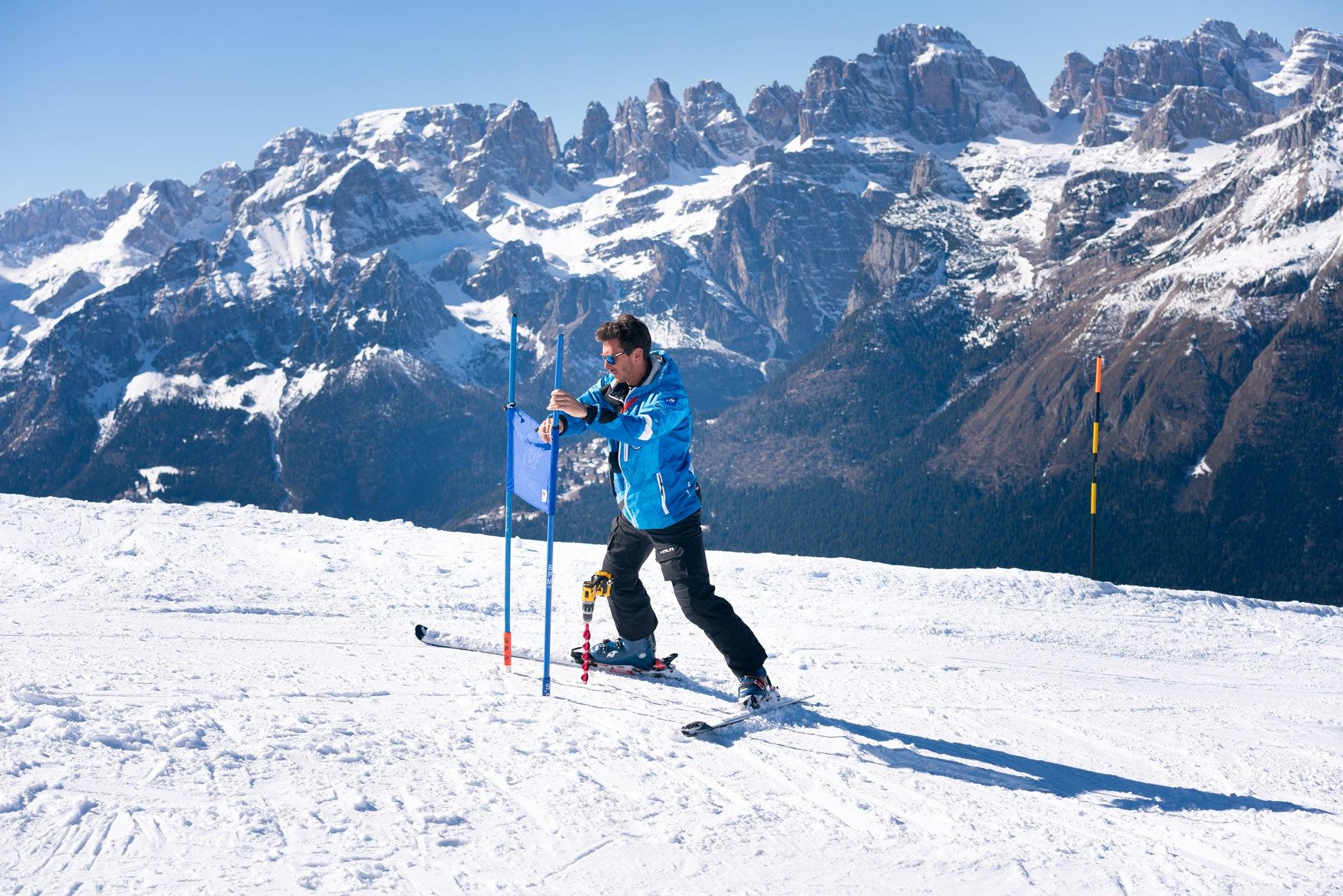
“I started with the "baby" category, which includes tots from the third and fourth years of primary school. Now I train the "cubs", who include the fifth year of primary and first year of middle school.
During the winter season training takes place on Wednesday, Friday, and Saturday. The children arrive after school a few at a time, and they train for about three hours. On Sundays we hold races.”
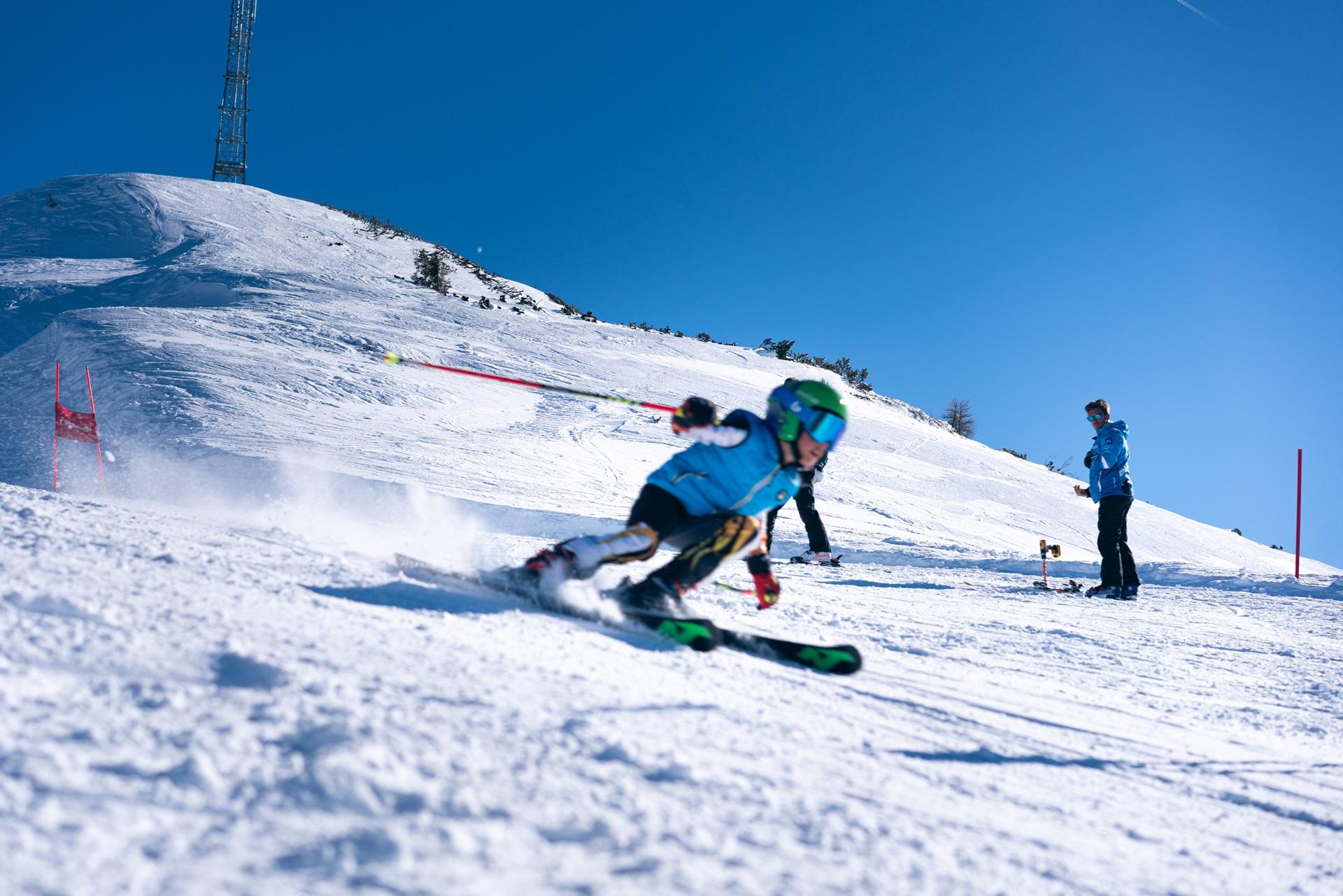
The training is not over when the ski lifts close. To improve their coordination and balance, very important aspects of skiing, the youngsters of the Ski Team can take part in lots of activities over the summer: from downhill riding on the Paganella and BMX at Torbole, to swimming, the Forest Park in Molveno, and rock climbing. At the end of August it is time to get back onto skis and Luca spends twenty days overall on a glacier with the youngsters of his category before the official start of the winter season.
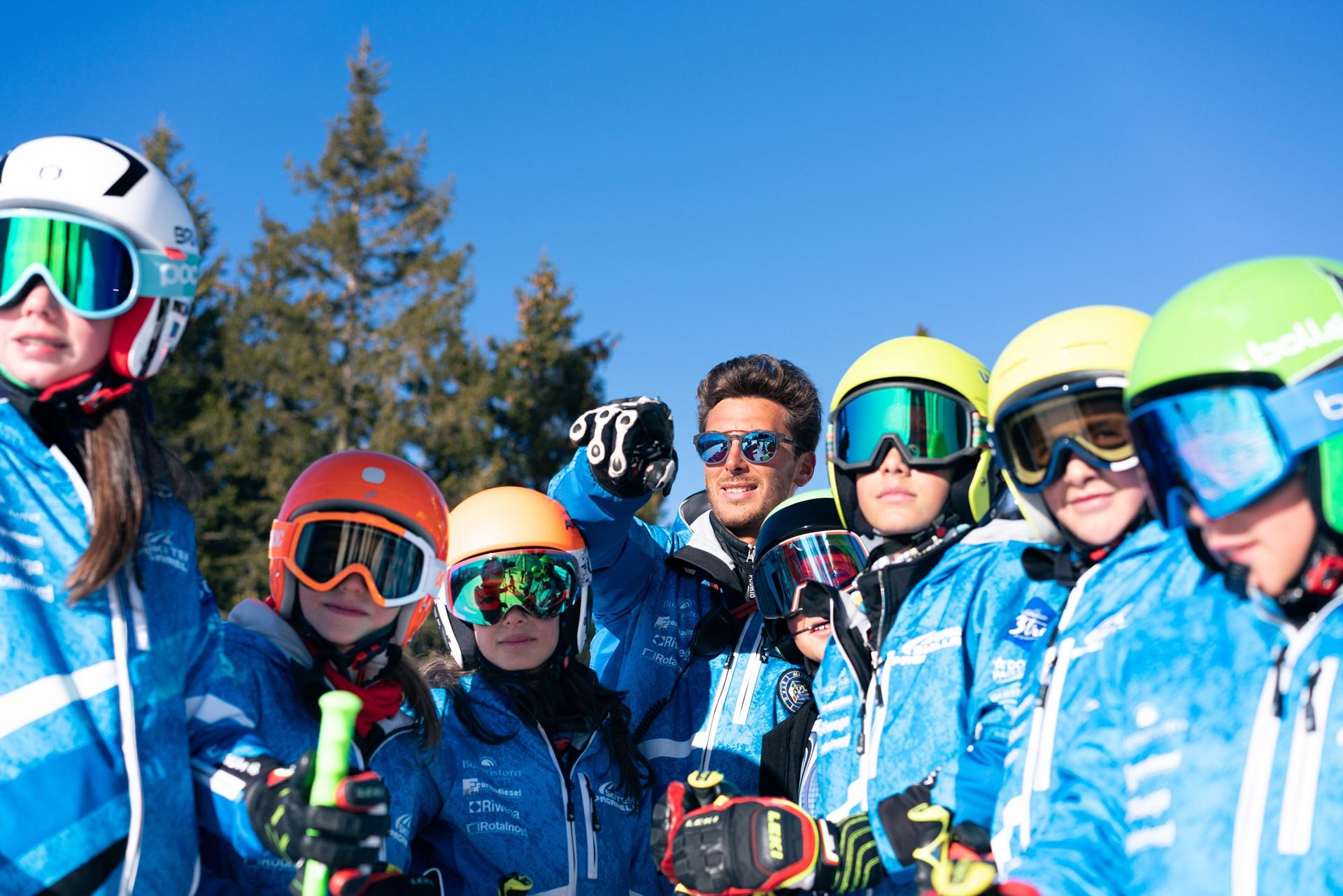
“People often think that competitive sport with small children means aggrandizement, sacrifice, obsession with performance,” says Luca. “It is none of these things.”
“The races, while they are certainly days of fun and excitement for the children, serve mainly for us as trainers, to understand whether we are working well and teaching the right technique.
Before a race we already know, more or less, how the children will be ranked. The aim and aspiration is to see that, for example, an athlete who in January was always placed amongst the 30s, in March is among the top 15. This means that they have improved technically, but probably also in dealing with their emotions.
There are many children who deliver 90% of their potential in training and then in a race it is as though they are skiing for the first time in years. Part of our work is to teach them to manage their anxiety, transforming it into positive energy.”
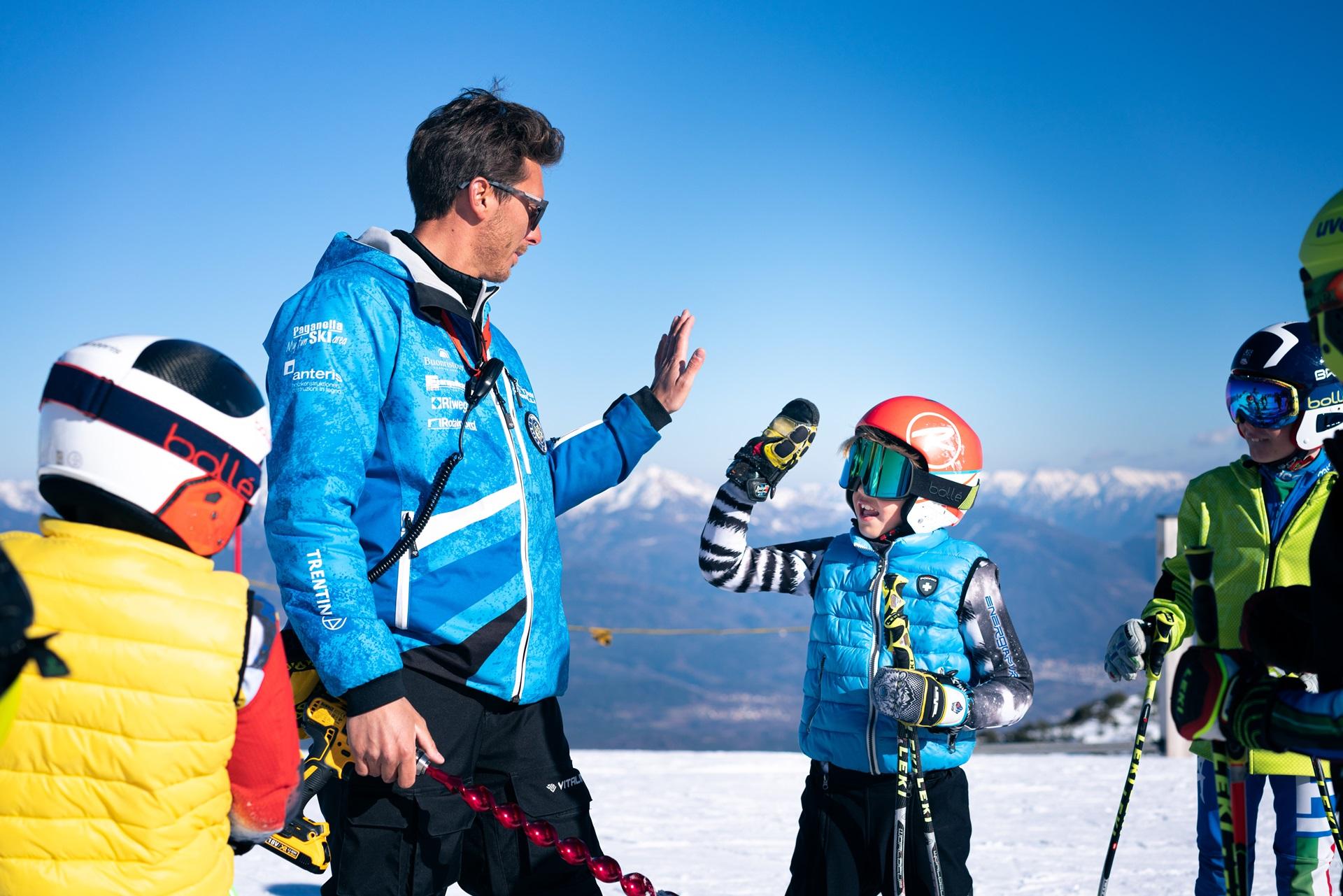
“What I strive to do every day is lay down a foundation so that one day, at the age of 13 or 14 years, my youngsters can choose whether to continue competitive skiing and become genuine athletes, with all the sacrifices that this entails.
From an early age they learn technique, to manage their emotions, and another important element, to be independent. Being competitive at this age means having to organize yourself with homework, prepare your ski equipment, and look after yourself during the training camps.
If they exploit this knowledge and skill in a competitive sports career, I will certainly be happy, but in any case I am certain that the lessons learned on the ski slopes will also be valuable in their everyday lives.”
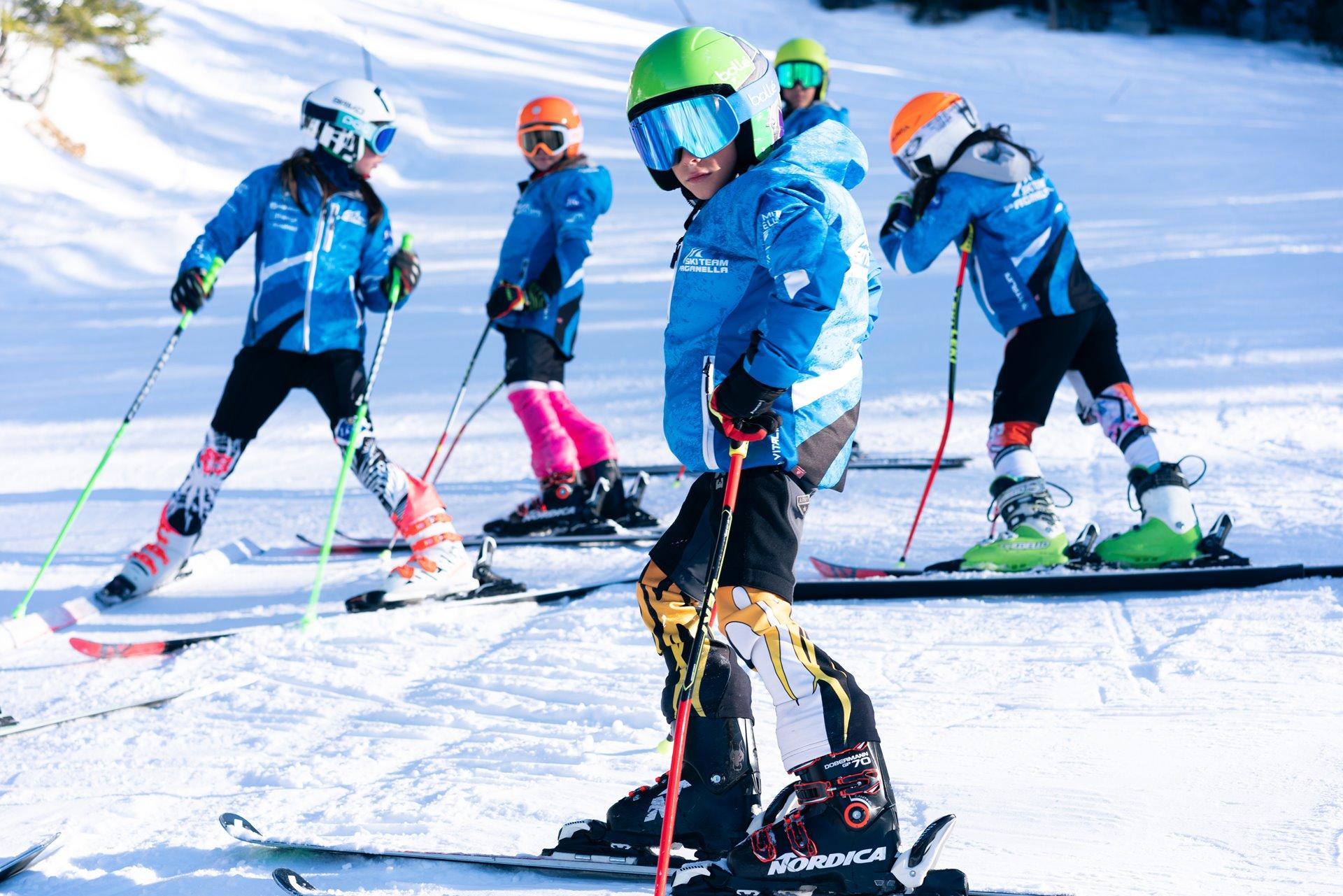
Most read
Pushchair hiking in Dolomiti Paganella
20
July 2024
Your guide to walking routes suitable for hiking pushchairs, immersed in the forests and natural wonders...
Cavedago and Spormaggiore: villages to visit on your holiday in Paganella
18
July 2024
Blog entry not available. Return to the homepage....
Dolomiti Paganella in a camper van: a practical guide for your journey
16
July 2024
In Dolomiti Paganella the freedom to roam and get close to nature are part of our DNA. However, when...
Hiking in Dolomiti Paganella
04
July 2024
Lace up your boots, make a final check on the weather forecast, and switch on GPS tracking. No particular...



